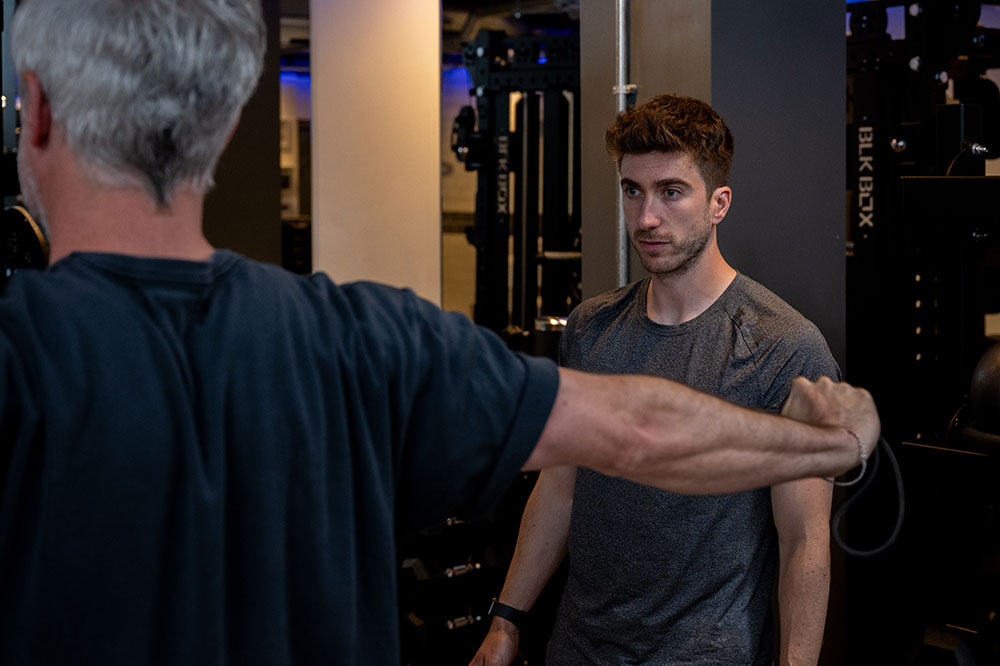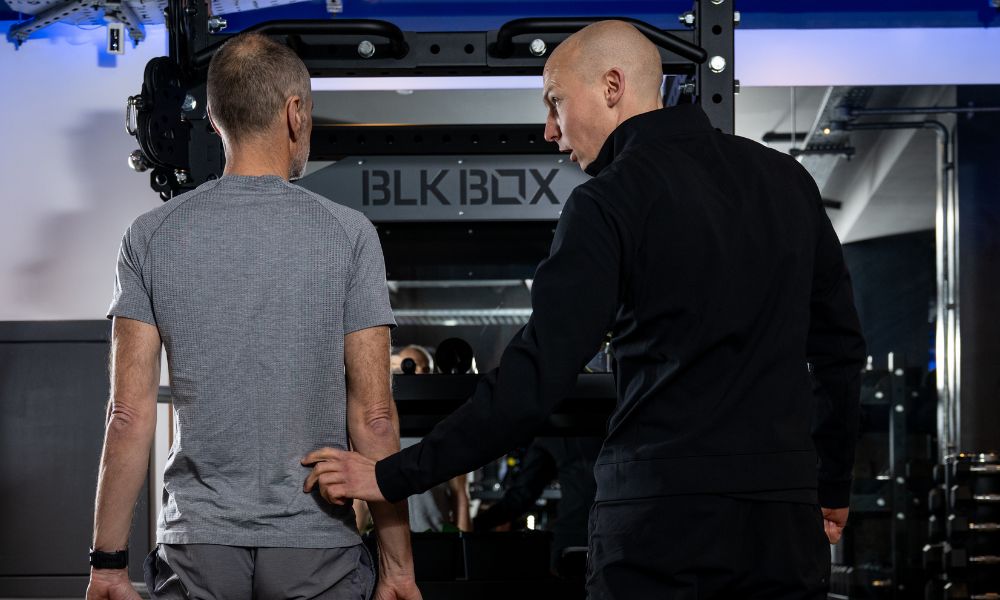If you’re currently taking a weight loss medication, you might be curious, or even a little anxious, about what happens if you decide the time is right to stop. Will the appetite suppression fade? Will cravings or unhelpful habits creep back in? Will you automatically go back to your previous body weight?
Unfortunately, there’s no getting around the fact that there’s a lot of unhelpful (or downright incorrect) information out there about what comes next.
Here, we’ll explain what the science says about transitioning off weight loss medications – and what we’ve seen work for people who want to continue their health journey without GLP-1s and tirzepatide-type drugs.
When You Stop: What Happens?
GLP-1 medications work by mimicking hormones that regulate appetite and satiety (your feeling of ‘fullness’), leading to reduced food intake and significant weight loss. However, once you stop taking them, these effects diminish, and your body’s natural hunger signals return.
In the modern world, where calorie-dense, well-marketed food is plentiful, it’s perhaps no surprise that people often regain weight they’ve previously lost as a result.
The appetite and food issues are tricky enough to navigate – but there’s another factor at play too. Rapid weight loss from these drugs often includes a loss of muscle mass. As your muscle mass decreases, so too does your resting metabolic rate (the number of calories your body burns at rest). Strength training during weight loss can prevent this – but if you haven’t established this habit as you dropped the pounds, your now-reduced muscle mass can make it more likely that you gain weight when you stop the medications.
These issues are well-played-out in science. In fact, they even have a name – “Ozempic rebound.”
So, is stopping futile? Is maintaining a healthy diet going to feel like an impossible task? Our answer is a solid “no”. With the right support, you absolutely can transition from weight loss medications to a healthy lifestyle and maintain the physique you want.
Let’s talk about how.

Exercise is Your Very Best Ally
Exercise, particularly strength training, plays a vital role in counteracting the physiological changes that occur after discontinuing GLP-1 medications. Here are the four main reasons why it’s so important:
1. Preserving and Building Muscle Mass
Muscle tissue is metabolically active, meaning it burns more calories than fat tissue, even at rest. Engaging in regular effective strength training helps rebuild any muscle lost during weight loss, thereby boosting your metabolism and aiding in weight maintenance.
If we’re going to be 100% direct about this, this really means that the right exercises, combined with proper equipment in a supportive environment, are key to rebuilding strength effectively—and that means lifting real weights and using professional equipment, not just doing bodyweight exercises at home.
2. Enhancing Satiety and Appetite Regulation
Physical activity influences hunger-regulating hormones, helping to control appetite. Regular exercise can increase levels of peptide YY and glucagon-like peptide-1 (GLP-1), both of which promote feelings of fullness.
This hormonal balance can make it easier to manage increased hunger after stopping medication.
3. Improving Insulin Sensitivity
Exercise enhances insulin sensitivity, allowing your body to use glucose more effectively.
This not only helps in maintaining weight loss but also reduces the risk of developing type 2 diabetes—a common concern for individuals with a history of obesity, especially when moving away from obesity drugs.
4. Boosting Mood and Mental Well-being
The psychological aspect of weight maintenance is often overlooked. Exercise releases endorphins, which can improve mood and reduce stress and anxiety.
This emotional boost can be particularly beneficial during the transition off weight loss medications, a period that may be fraught with challenges.
Crafting Your Post-GLP-1 Exercise Plan
Developing a sustainable and enjoyable exercise routine is key to long-term success. That means finding a balance between structured strength sessions and general movement throughout the day.

Strength training should be the cornerstone of your plan—aim for at least two sessions per week, targeting all major muscle groups. It’s the single most effective way to preserve lean mass, support your metabolism, and improve body composition. And when delivered by a knowledgeable personal trainer, your strength training sessions can be used to improve flexibility and balance.
Around that, general activity matters too. Daily step count is a big one. Keeping your overall movement high (even through simple habits like walking to work or taking the stairs) contributes massively to long-term weight management.
Enjoyable movement outside of the gym also has its place. Whether it’s dancing, a kickabout in the park, or a long weekend hike, these activities keep exercise feeling fun and integrated into your lifestyle.
The golden rule? Make strength the anchor, but build an active life around it. It’s not about perfection—it’s about consistency and enjoying how your body moves.
Nutrition: The Other Half of the Equation
While exercise is crucial, pairing it with a balanced diet enhances your ability to maintain weight loss.
- Protein Intake: Ensure adequate protein consumption to support muscle repair and growth. Sources include lean meat and fish, dairy, legumes, and plant-based proteins.
- Fibre-Rich Foods: Incorporate plenty of vegetables, fruits, and whole grains to promote satiety and digestive health.
- Mindful, Deliberate Eating: Pay attention to hunger and fullness cues to avoid overeating. Mindful eating practices can help you develop a healthier relationship with food.
Of course, no one says you have to face a future with no takeaway food, no caramel lattes, and no chocolate. The key is to make nutrient-rich whole foods the majority of what you eat. Try to keep the less-nutritious food as an occasional treat, rather than a daily staple.
Support That Makes the Difference
Having a personal trainer as you come off weight loss meds isn’t just helpful—it’s often essential. Strength training, in particular, needs to be done correctly and safely. The right form, the right volume, the right resistance—all of these are key to avoiding injury and getting results that last.

For many people considering this kind of future, the goal isn’t to stack on lots of muscle—it’s to move well, feel strong, and reshape the body in a way that supports long-term health. A knowledgeable trainer helps you do just that: toning the body intelligently, building joint stability, and tailoring your programme to fit your lifestyle, energy levels, and recovery needs.
More than that, having someone in your corner means you don’t have to second-guess what you’re doing. You get structured support, expert feedback, and the kind of accountability that turns intention into habit. When things get tough (as they inevitably will), your trainer helps you adjust—not abandon—your plan.
It’s about building confidence in your body again, with someone who genuinely understands how to guide that process for you.
Take the Next Step with Certainty
If you’re coming off weight loss medication, it’s perfectly normal to feel uncertain. You might be worried about old habits creeping back in, or unsure how your body will respond without that pharmaceutical support. That sense of unpredictability can be unsettling.
What’s important to remember is: you don’t need to have all the answers. You don’t need to understand every hormone shift or metabolic nuance. That’s what support is for.
Having someone in your corner who truly understands the science behind this transition—and who knows how to apply it to real life—is often the difference between moving forward with confidence and slipping back into patterns you’ve worked so hard to change. Whether it’s advice on training, adjustments to your nutrition, or simply someone to reassure you that what you’re feeling is normal, the right support can make the whole process feel lighter.
You’re not expected to navigate this alone. And you don’t have to. A Fitness Lab coach, with the backing and knowledge of the full team here, will carry the complexity – so you can focus on living well and feeling strong in your body, without the guesswork.

